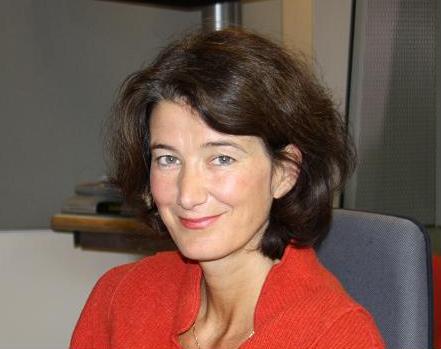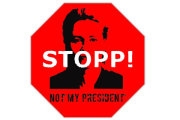Author Archive
 |
16. January 2013 – 10:28 by Rolf Luehrs
|
Call Text from Noella Edelmann and Peter Parycek (Conference Chairs):
We kindly invite you to submit a paper to this year*s CeDEM – Conference for E-Democracy and Open Government. The conference will be held in Krems, Austria, 22-23 May 2013. The submission deadline has been extended to 5 February 2013.
In 2013, the CeDEM13 will focus on E-Democracy and Open Government in the context of human rights and freedom in a digital society and covers the following topics: E-Democracy, E Participation, Government 2.0, Social Media and Public Administration, E Politics and E Campaigning, European Citizen Initiative, Participatory Budgeting, Bottom Up Movements, Open Data, Open Innovation, Open Science and Open Access.
Keynotes at the CeDEM13 will include John Carlo Bertot from the University of Maryland, Karine Nahon from the University of Washington, Beth Noveck from the New York Law School and former United States Deputy Chief Technology Officer for Open Government, and Tiago Peixoto from the World Bank, Washington.
Conference website: www.donau-uni.ac.at/cedem
Submission site: www.cedem-conference.org/cedem13
Follow us on Facebook: https://tinyurl.com/CeDEMfacebook
Posted in Uncategorized | No Comments »
 |
10. August 2012 – 11:55 by Rolf Luehrs
|
Date: Saturday, 1st of December 2012, 10am – 6pm
Topic:
The Internet was always connected to a vision of a participatory society. There is the idea that the new medium would produce politically better informed citizens and that that would lead to greater citizen participation. However, skeptics believe that the barriers between the individual and the political public sphere are not technical but social in nature and therefore cannot be repealed by online technologies. Today we are still somewhat between the highly technical deterministic and technical indifferent position. With the social web new opportunities developed and they are used by civil society organizations as well as by political parties and by governments and administrations – from e-petitions to adhocracy, from wikis to open data. What works? Who participates? How can people be mobilized online? What impact do the new online tools have on political communication, on political decision-making and on the political system itself. That is the subject of this conference. We will look at the political online participation from different perspectives, from the civil society side, bottomup, and from the sides of politics, top-down. The conference will not only focus on and discuss scientific results but will also try to build a bridge between science and practice in order to share knowledge and experience. Therefore scientists and representatives from civil society organizations, parties, administrations etc. are invited.
Conference language is German, translation cannot be provided.
More Infos
Posted in Uncategorized | 2 Comments »
 |
30. March 2012 – 14:01 by Rolf Luehrs
|
 Prof. Patrizia Nanz is Professor of Political Theory at the University of Bremen and a founding member of the European Institute of Public Particiaption (EIPP). She will be delivering the keynote address at the upcoming “PEP-NET Summit: Out in the Open” event on 14th May 2012.
Prof. Patrizia Nanz is Professor of Political Theory at the University of Bremen and a founding member of the European Institute of Public Particiaption (EIPP). She will be delivering the keynote address at the upcoming “PEP-NET Summit: Out in the Open” event on 14th May 2012.
Patrizia has been conducting research into the future of democracy for over ten years and is known across Europe as an expert in civil society participation and engagement. In March 2012 the Bundeszentrale für politische Bildung (Federal Centre of Political Education) published her handbook on participation, Handbuch Bürgerbeteiligung. Verfahren und Akteure, Chancen und Grenzen.
Patrizia studied Philosophy, History and German Language and Linguistic Studies in Munich, Frankfurt and Montreal as well as Political Science at the European University Institute in Florence, and was a Fellow at the Institute for Advanced Study in Berlin.
Posted in Events, News | No Comments »
 |
23. August 2011 – 16:48 by Rolf Luehrs
|
The European Comission published a call for tender to implement an European Commission Open Data Portal.
The purpose of this tender is the purchase of services:
- to develop and administer a web portal to act as single point of access to data sets produced and held by European Commission services (and by extension to data sets produced and held by other European Institutions/bodies and other public bodies);
- to assist the Commission with the definition and implementation of a data set publication process;
- to assist the Commission with the preparation of data sets for publication via the portal;
- to assist the Commission in supporting for engaging the stakeholders’ community interested in re-using the published data sets.
Deadline: September 19th. For detailed information see : https://ec.europa.eu/information_society/policy/psi/open_data/call_tenders/index_en.htm
Posted in calls & tender, open data | No Comments »
 |
3. August 2011 – 14:58 by Rolf Luehrs
|
We have extended the deadlines for the call for chapter proposals for our book Sustainable eParticipation:
Researchers and practitioners are invited to submit on or before August 31, 2011, a 2-3 page chapter proposal clearly explaining the scope and contents of their proposed chapter. Authors of accepted proposals will be notified by September 15, 2011 about the status of their proposals and sent chapter guidelines. Full chapters are expected to be submitted by October 30, 2011. All submitted chapters will be reviewed on a double-blind review basis. Contributors may also be requested to serve as reviewers for this project.
For more information see our previous post: https://pep-net.eu/blog/2011/06/26/call-for-chapter-proposals-sustainable-eparticipation/
Posted in good practice, Projects | No Comments »
 |
22. November 2010 – 17:08 by Rolf Luehrs
|
The “eParticipation” workshop is an initiative supported by the European Commission, Information Society and Media Directorate-General and will take place in Brussels, on 07 December 2010.
It aims to bring together experience and practices available in the EU and to draw lessons from the variety of projects and engage citizens and civil society alike in debating top level policy issues for the European Union. This event will take place at the right time to place eParticipation on the new political agenda of the EU, while explore its possible contribution to major political reforms throughout the EU.
Workshop topics:
• eParticipation good practice: Examples of eParticipation success stories and lessons learned, related to large scale implementations in production or pilot operation.
• eParticipation experiment design: Innovative approaches to the design of eParticipation showcases that demonstrate concrete benefits for the democratic – processes.
• Assessment of impact and comparative research. Tracking and analysis of eParticipation initiatives. MOMENTUM support action results.
• eParticipation tools and services: Practical solutions for eConsultation, ePetition, conflict resolution and mediation, eDeliberation and others.
• ICT for argumentation support: How ICT tools can support eParticipation in more dimensions than simple communication media: collaboration, content management, etc.
• Policy issues: How is the eParticipation social and legal landscape formed in Europe and elsewhere? What are the key lessons learned from the projects so far?
• Social Risk assessment: What needs to be considered in order not to undermine the fundamental social requirements associated with Democracy?
• Current eParticipation Preparatory Action project reports. The workshop welcomes announcements from the current eParticipation Preparatory Action projects (EMPOWER, EUROPETITION, U@MARENOSTRUM, VIDI, VOICES, HUWY, and WAVE).
For more information for attendees and speaker, please visit the worshop announcement on ePractice.
Posted in Events | No Comments »
 |
28. September 2010 – 17:24 by Rolf Luehrs
|

Lively discussion at the PEP-NET Summit
At last week’s PEP-NET Summit we set out to move European eParticipation one step forward.
The diversity of the audience and the broad range of projects that were shown in the presentation corners emphasised again that eParticipation is multifaceted, and that we should move beyond discussing whether or not digital technology can improve participation to thinking of eParticipation as a toolkit with a variety of tools for different purposes. Just as it is no longer enough for digital disciples to set up a free blog and Twitter account in the hope that eParticipation will take care of itself, neither is it right to claim that eParticipation has nothing to offer.
Whether ePetitions, eVoting, discussion forums, online consultation portals, online participatory budgeting or one of the many other eParticipation interventions, each intervention has its own particular purpose. The differentiated approach that I talked about in my speech means thinking carefully about which of these tools best serves your objectives.
This means being open to technological change and the benefits it can bring in terms of efficiency, wider engagement of citizens, and better policy-making; but also being aware of the limitations and how these can be overcome. With the emphasis very much on discussion and networking between the sectors, the PEP-NET Summit was a catalyst in this process.
The summit opened with a welcome address from Bernd Reinert, Staatsrat at the City of Hamburg, who spoke about Hamburg’s experience of successful eParticipation projects. He also gave a compelling account of the history of the Warehouse Quarter in which the Summit was held: the area was once a storage space for spices, carpets, coffee and all manner of imports that would then be distributed to retailers. (I think that is symbolic of this PEP-NET Summit, which took big ideas and high-level policy and unpacked them into smaller, “bite-size” pieces for practical application by end users.) Read the rest of this entry »
Posted in Uncategorized | 4 Comments »
 |
17. August 2010 – 18:32 by Rolf Luehrs
|

The calm of Hamburg’s historic Speicherstadt is not usually disturbed by anything more than the chatter of tourists exploring the picturesque surroundings in the sun, or a sprinkling of rain sending ripples across the canals. (Here is a nice video as appetizer).
But on 23rd September 2010, we’re hoping to make waves that spread well beyond the canals of Hamburg to the furthest corners of Europe!
Along with the keynote speeches from the movers and shakers of European eParticipation, we will be hosting 14 half-hour presentations in our presentation corners. That’s a total of seven hours’ presentations of groundbreaking eParticipation projects in an informal atmosphere, where you will be able to move from one presentation to another and discuss with other participants.
As many as four presentations will be running in parallel, allowing you to move from one to the other according to what you find most interesting. It will get loud in there, but that will only add to the lively hustle and bustle and make sure that this is so much more than just another flashy conference.
We’ve got presenters from all across Europe: Germany, Scotland, England, Estonia, Slovakia, Greece, the Netherlands, and Denmark. The topics discussed will range from open government to grass-roots citizen participation in local politics via participatory budgeting. Our presenters themselves are a diverse bunch, in terms of nationality, areas of expertise, and organisations they work for: we’ve got academics like Peter Cruickshank from International Teledemocracy Centre at Edinburgh Napier University, Civil Servants like Hille Hinsberg from the Estonian Cabinet Office, and Dominic Campbell, founder and Director of UK consultancy and social innovation incubator FutureGov. Then there’s Chuck Hirt, of the Central and Eastern European Citizens Network, André Basten and Hanss Christian Lange from the City of Hamburg … and I could go on. Full details will be published soon together with the final agenda at the summit page – so stay tuned!
The PEP-NET Summit is all about participation, and we have really tried hard to keep that in focus: a glance at the agenda will confirm that there will be plenty of time for discussion, whether in the presentation corners, during the question and answer sessions at the end of each keynote session, or at the end of the day when there is an hour dedicated to summarising and discussing what was said. If that isn’t enough networking for you, make sure you come along to the dinner in the evening. Finally, on the following morning we are offering a tour of Hamburg with an eParticipation focus. Look forward to seeing you in Hamburg!
Posted in Events, members | 3 Comments »
 |
7. June 2010 – 18:23 by Rolf Luehrs
|
Last weeks resignation of Horst Köhler as Federal President is a unique incident in Germany’s history and demonstrates that social media have become a political force that can not be neglected anymore.
Horst Köhler resigned as Federal President because of public criticism of his comments about Germany’s mission in Afghanistan. Interestingly the radio interview in which he elaborated on the reasons for Germany’s international military engagement was broadcast by May 22nd already and did not lead to noteworthy coverage in the mainstream media.
The first to pick up Köhler’s controversial remarks about the relations of Germany’s economic interests and the Afghanistan mission was the fairly unknown blog unpolitik.de, followed by five others with a rather limited reach. In parallel also better known bloggers covered the story – but still none of the mainstream media (see carta.info for a detailed report).
One of the bloggers ( ) who felt especially disgusted about the media’s ignorance directly approached several big newspapers and magazines via twitter, asking for some reaction.

After “Deutschlandradio” broadcasted an interview with the Christian Democrat Ruprecht Polenz on May 27th, who said that Köhler expressed himself imprecisely, the media storm slowly gained momentum. A very critical report that appeared in Germany’s biggest news magazine “Der Spiegel” might finally have pushed Köhler over the edge.
But influence of social media did not end here. Pretty soon after the political class had overcome the state of shock, Chancellor Angela Merkel was said to have already a favourite for the vacant position: the quite well reputed Minister for Family Affairs, Ursula von der Leyen. Unfortunately von der Leyen became a hate figure among netizens in 2009 due to her ambitions to block Internet sites in order to fight child pornography. The respective policy was perceived by the net community as attempt to set up a censorship infrastructure generally enabling the government to block particular websites.
A strong and still growing network opposing these ideas quickly formed within the German internet community. (…) The HashTag used by the protesters is #zensursula – a German mash up of the Minister’s name and the word censorship equivalent to #censursula. As part of the public’s protest an official e-Petition directed at the German parliament was launched. Within three days 50,000 persons signed the petition – – the number required for the petition titled „No indexing and blocking of Internet sites“ to be heard by the parliament. The running time of an e-Petition in Germany is 6 weeks – within this time over 130,000 people signed making this e-Petition the most signed and most successful ever. (link)
Quite understan dably this movement against net censorship was not delighted by the prospect of von der Leyen becoming Germany’s next President – and immediately revived the campaign. For the same reason but even more important the Liberal Democrats – part of the currently governing coalition – rejected the proposal as well.
dably this movement against net censorship was not delighted by the prospect of von der Leyen becoming Germany’s next President – and immediately revived the campaign. For the same reason but even more important the Liberal Democrats – part of the currently governing coalition – rejected the proposal as well.
The German chancellor adapted to the situation immediately and presented the state premier of Lower Saxony, Christian Wulff, as official candidate instead. Read the rest of this entry »
Posted in Events, Trends | 1 Comment »
 |
21. May 2010 – 11:28 by Rolf Luehrs
|
Bürgerhaushalt, Leitbildentwicklung, Gesetzgebungsverfahren und die Bau- und Landschaftsfplanung – in diesen Bereichen werden vermehrt Beteiligungsverfahren über das Internet aufgesetzt.
Vor der Durchführung einer Online-Beteiligung stellen sich zahlreiche Fragen:
Was lässt sich mit einer Beteiligung konkret erreichen?
Wann sollte das Medium Internet genutzt werden?
Wie hoch sind Kosten und Aufwände?
Welche Methoden können eingesetzt werden?
Wie wird die Beteiligung zum Erfolg?
Die Bertelsmann Stiftung gibt gemeinsam mit dem Deutschen Städte- und Gemeindebund (DSTGB), der Finanzbehörde der Freie und Hansestadt Hamburg und dem Bundesministerium des Inneren dazu einen 62-seitigen Leitfaden „Online-Konsultation“ heraus, der „Praxisempfehlungen für die Einbeziehung der Bürgerinnen und Bürger über das Internet“ gibt. Für politische Mandatsträger, Entscheidungsträger und Mitarbeiter öffentlicher Verwaltungen, insbesondere eGovernment Beauftragte, stellen die beschriebenen Handlungsempfehlungen sicherlich eine wertvolle Entscheidungshilfe dar.
Im ersten Teil werden anhand zahlreicher Praxisbeispiele, wie dem Bürgerhaushalt in Hamburg und der Online-Bauleitplanung, Potenziale und Voraussetzungen für Online-Beteiligungen erörtert. Der zweite Teil beschreibt Erfolgsfaktoren und gibt Tipps zur Vorbereitung, Durchführung und zur Auswertung der Online-Beteiligung.
Der Leitfaden steht als PDF (~8MB) zum Download bereit.
Posted in News, Trends | No Comments »

 Prof. Patrizia Nanz is Professor of Political Theory at the University of Bremen and a founding member of the
Prof. Patrizia Nanz is Professor of Political Theory at the University of Bremen and a founding member of the 


 dably this movement against net censorship was not delighted by the prospect of von der Leyen becoming Germany’s next President – and immediately revived the campaign. For the same reason but even more important the Liberal Democrats – part of the currently governing coalition –
dably this movement against net censorship was not delighted by the prospect of von der Leyen becoming Germany’s next President – and immediately revived the campaign. For the same reason but even more important the Liberal Democrats – part of the currently governing coalition – 





